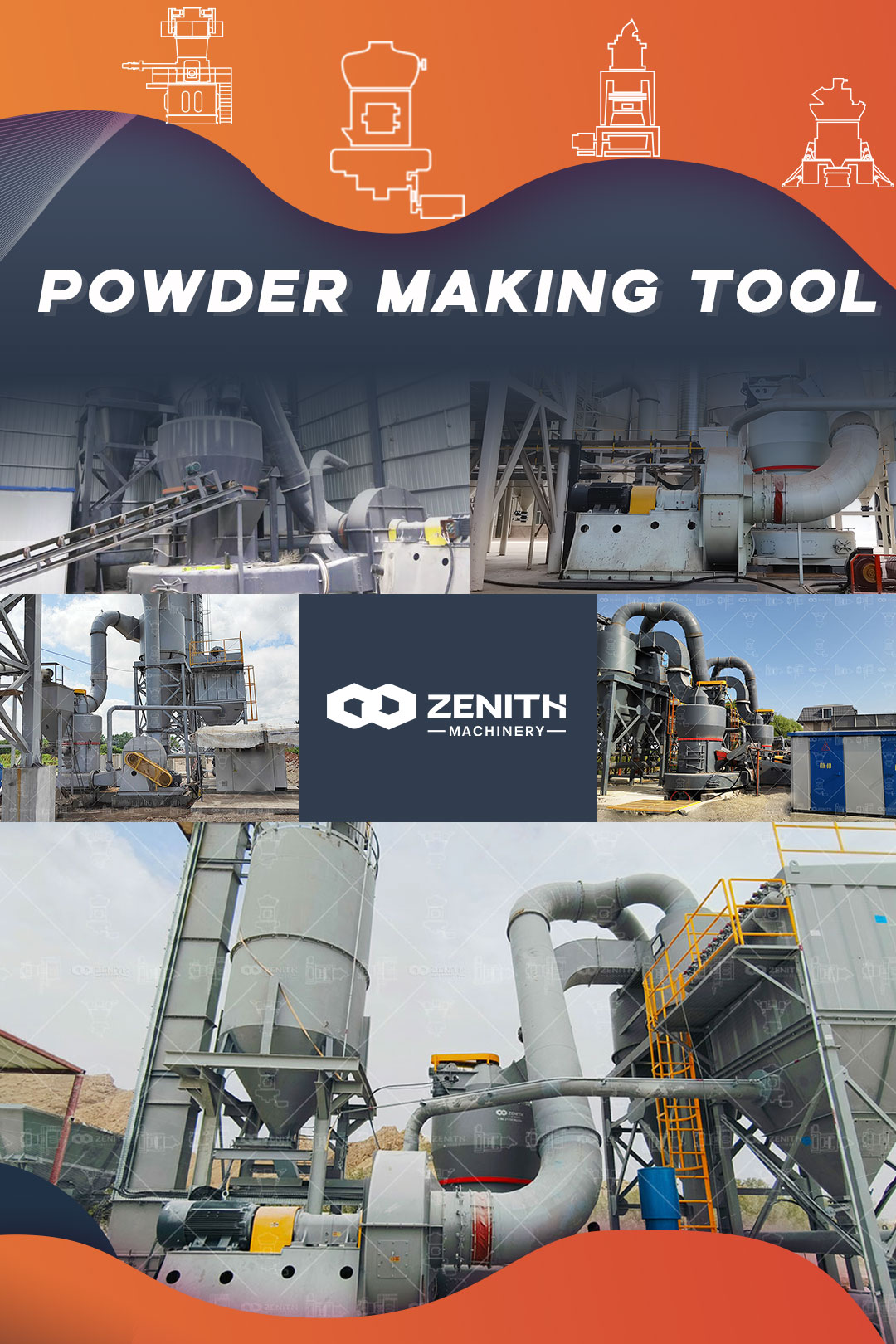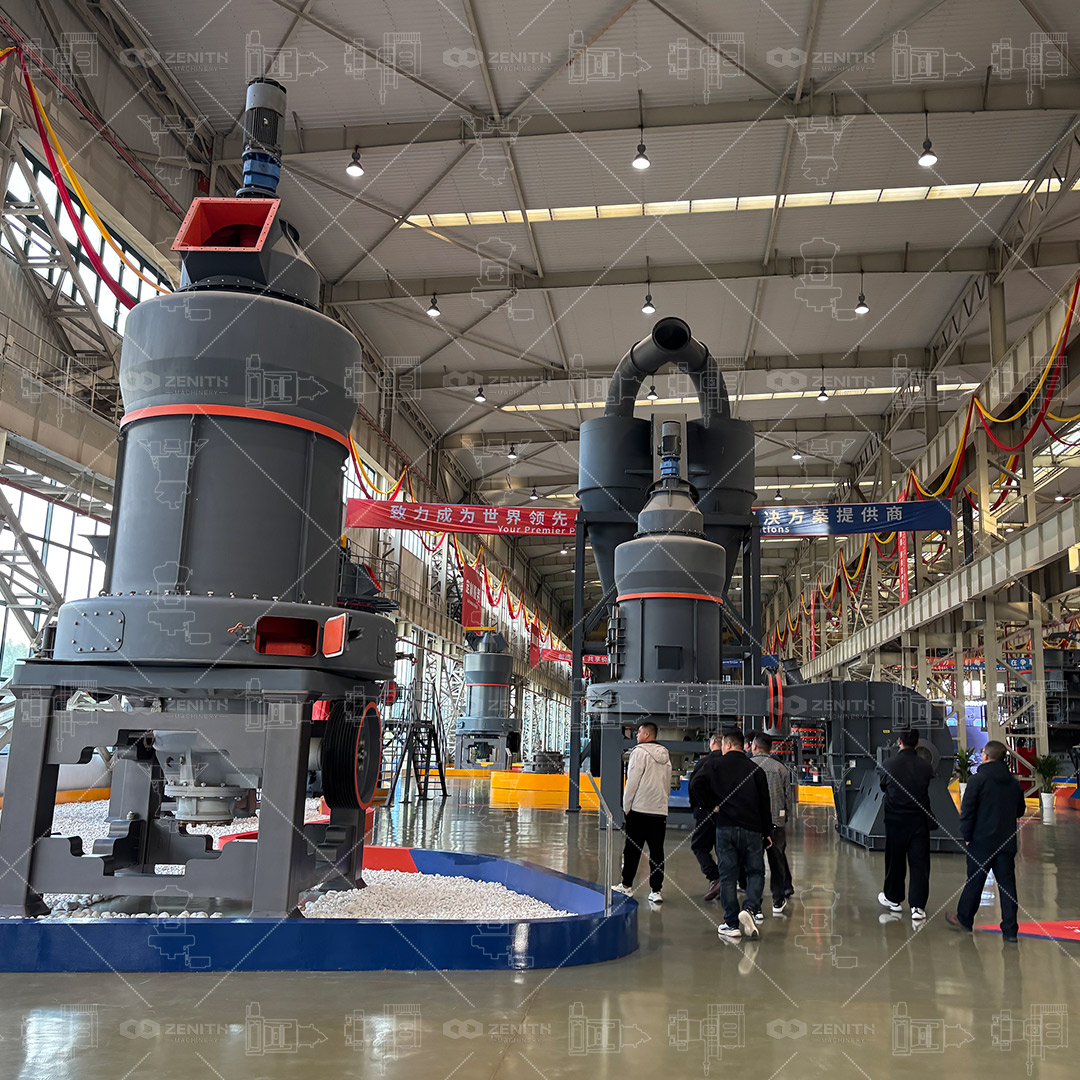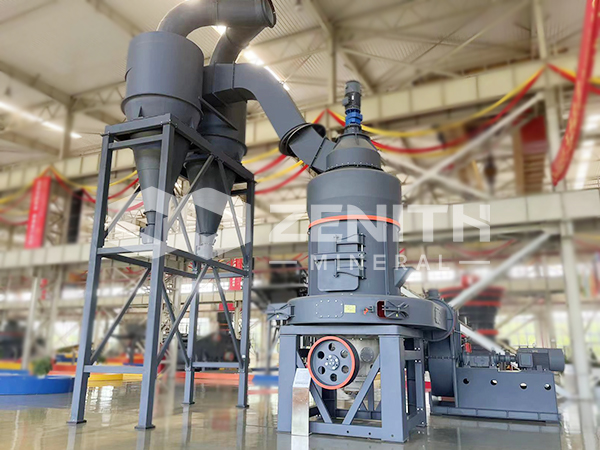Investment cost of a 1200 mesh ultrafine calcite powder production line
2025-11-09 18:39:19
Establishing a production line for ultrafine calcite powder, particularly targeting the demanding 1200 mesh specification, requires careful consideration of both technical requirements and financial investment. For companies like Shanghai Zenith Machinery, with decades of specialized experience in industrial powder grinding, the key to a successful and profitable operation lies in selecting the right equipment that balances initial capital outlay with long-term operational efficiency.
The core of any ultrafine calcite production line is the grinding mill. For achieving a consistent 1200 mesh product, traditional ball mills are often inefficient due to their high energy consumption and limited fineness control. The modern solution lies in advanced vertical roller mills and specialized ultrafine grinding systems. Our LUM Ultrafine Vertical Grinding Mill and XZM Ultrafine Grinding Mill are engineered specifically for this purpose. The LUM mill, for instance, integrates German powder separation technology, allowing it to produce powder in the range of 325 to 2500 mesh, making 1200 mesh a standard, easily achievable target.
_1762684759453.jpg)
Breaking Down the Investment Cost
The total investment cost is not merely the price of the main mill. It is a composite of several factors:
- Equipment Acquisition Cost: This is the most direct cost, covering the main grinding mill, the crusher for primary size reduction (like a Jaw Crusher or Hammer Mill to achieve the 0-20mm input size), feeders, powder collectors, and the electrical control system. Zenith's grinding mills, such as the MTW and MTM European Trapezium Mills, are designed as integrated production systems, which can significantly reduce the cost and complexity of auxiliary equipment procurement and plant foundation construction.
- Installation and Commissioning: This includes civil engineering for the foundation, equipment installation, and professional commissioning to ensure the entire line operates at peak performance. The compact and integrated design of our LM Vertical Grinding Mill, which occupies about 50% of the space of a ball mill system, directly translates to lower costs in building construction and foundation work.
- Operational Cost (OPEX): This is a recurring cost that profoundly impacts long-term profitability. The most significant component is energy consumption. A primary advantage of Zenith's grinding technology is its exceptional energy efficiency. For example, our MTW and MTM series mills consume over 60% less energy than a ball mill of the same grade. For a 1200 mesh calcite line running 24/7, this saving constitutes a massive reduction in electricity bills, allowing for a faster return on investment.
- Maintenance and Spare Parts: Downtime is expensive. Equipment designed for easy maintenance and with durable, high-quality components minimizes these costs. The LUM Ultrafine Vertical Mill features a hydraulic adjustment system and a reversible structure, allowing for quick repair and replacement of vulnerable parts. Similarly, the XZM mill's design, with no rolling bearings or screws in the grinding chamber, eliminates common failure points.
_1762684759456.jpg)
Why Zenith Equipment Offers a Superior ROI
Choosing Zenith machinery for your 1200 mesh calcite project is an investment in productivity and stability. Our equipment is designed with total cost of ownership in mind. Beyond the impressive energy savings, features like high automation reduce labor costs. The intelligent control systems on our Raymond Mills and LM Vertical Mills enable labor-free operation and remote monitoring, further cutting operational expenses.
Furthermore, the ability to precisely control fineness is critical. The XZM Ultrafine Grinding Mill allows for arbitrary adjustment between 325 and 2500 mesh directly from the electric control panel, ensuring your product consistently meets the stringent 1200 mesh specification without wasteful over-grinding. This precision, combined with high product purity—a key feature of the LUM and LM mills that control iron content and whiteness—ensures your calcite powder commands a premium price in the market.

Finally, environmental compliance is non-negotiable. All our grinding systems, including the LUM, LM, and XZM series, operate under negative pressure with pulse dust collectors, ensuring a dust-free workshop that meets international environmental standards. This proactive design prevents future costs associated with environmental fines or retrofitting pollution control equipment.
In conclusion, while the initial price tag is a consideration, the true cost of a 1200 mesh calcite powder production line is defined by its operational efficiency, maintenance demands, and product quality over its entire lifecycle. By investing in Zenith's proven, efficient, and automated grinding technology, you are not just buying a machine; you are securing a competitive advantage for years to come.

Frequently Asked Questions (FAQs)
- What is the typical lead time for a complete 1200 mesh calcite production line from Zenith?
Lead times vary based on the specific model and configuration, but typically range from 30 to 90 days after order confirmation, including manufacturing, testing, and preparation for shipment. - Can your mills achieve fineness even higher than 1200 mesh, such as 2500 mesh?
Yes, our XZM Ultrafine Grinding Mill and LUM Ultrafine Vertical Mill are specifically designed to produce powder from 325 mesh up to 2500 mesh (D97 < 5μm) in a single classification process. - How does the energy consumption of a Zenith grinding mill compare to a traditional ball mill?
Our advanced mills, like the MTW and MTM series, consume over 60% less energy than a ball mill of the same capacity and output fineness. The XZM mill is 40% more efficient and uses 70% less energy than air-flow mills. - Is technical support and installation guidance provided with the equipment?
Absolutely. Zenith provides comprehensive technical support, including detailed layout drawings, foundation plans, and the option for our engineers to supervise installation and commissioning on-site to ensure optimal performance. - What kind of after-sales service and spare parts availability can we expect?
We have a global network of overseas offices in over 30 countries, ensuring prompt after-sales service and a reliable supply of high-quality spare parts. Our systems are designed for easy maintenance to minimize downtime. - Are your grinding mills certified for international standards?
Yes, our equipment holds ISO international quality system certification, European Union CE certification, and Customs Union CU-TR certification, guaranteeing their quality, safety, and compliance for global markets.









